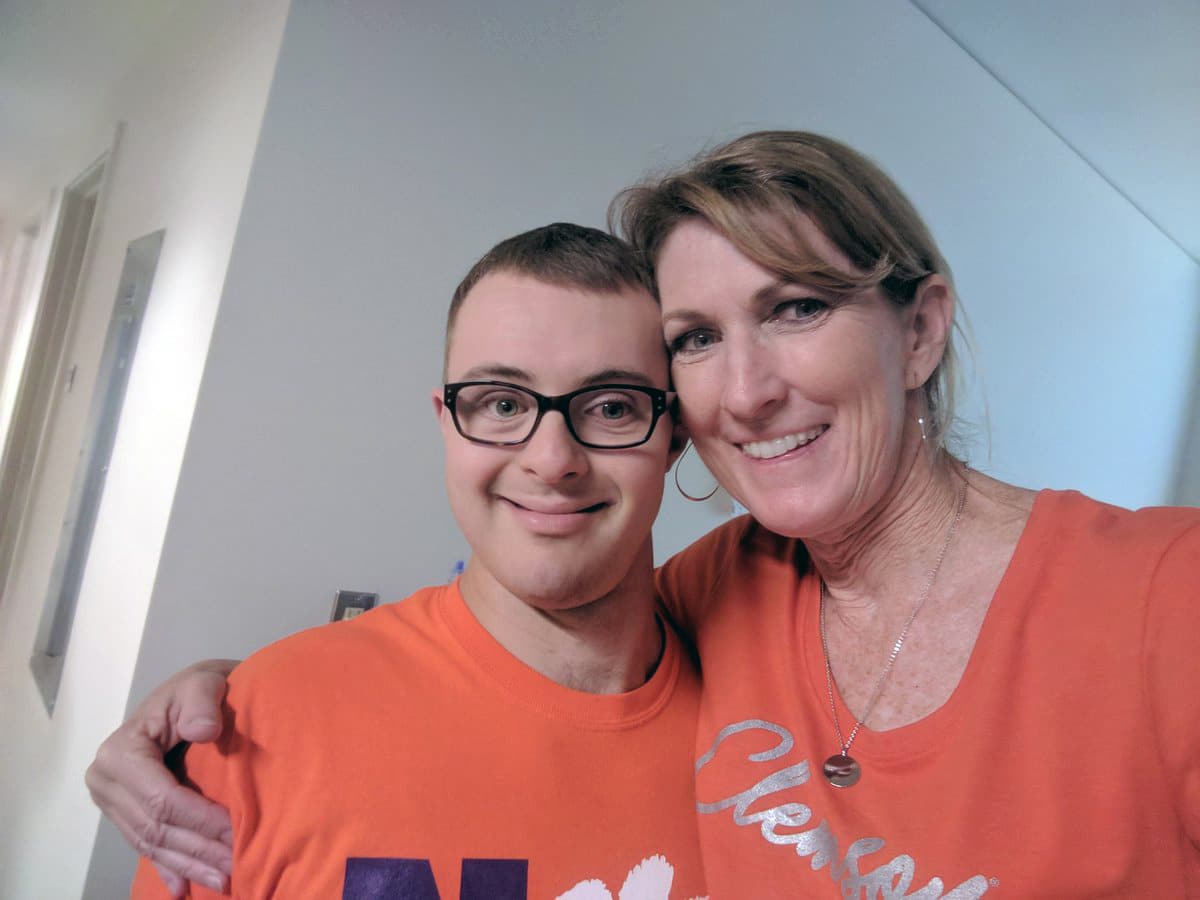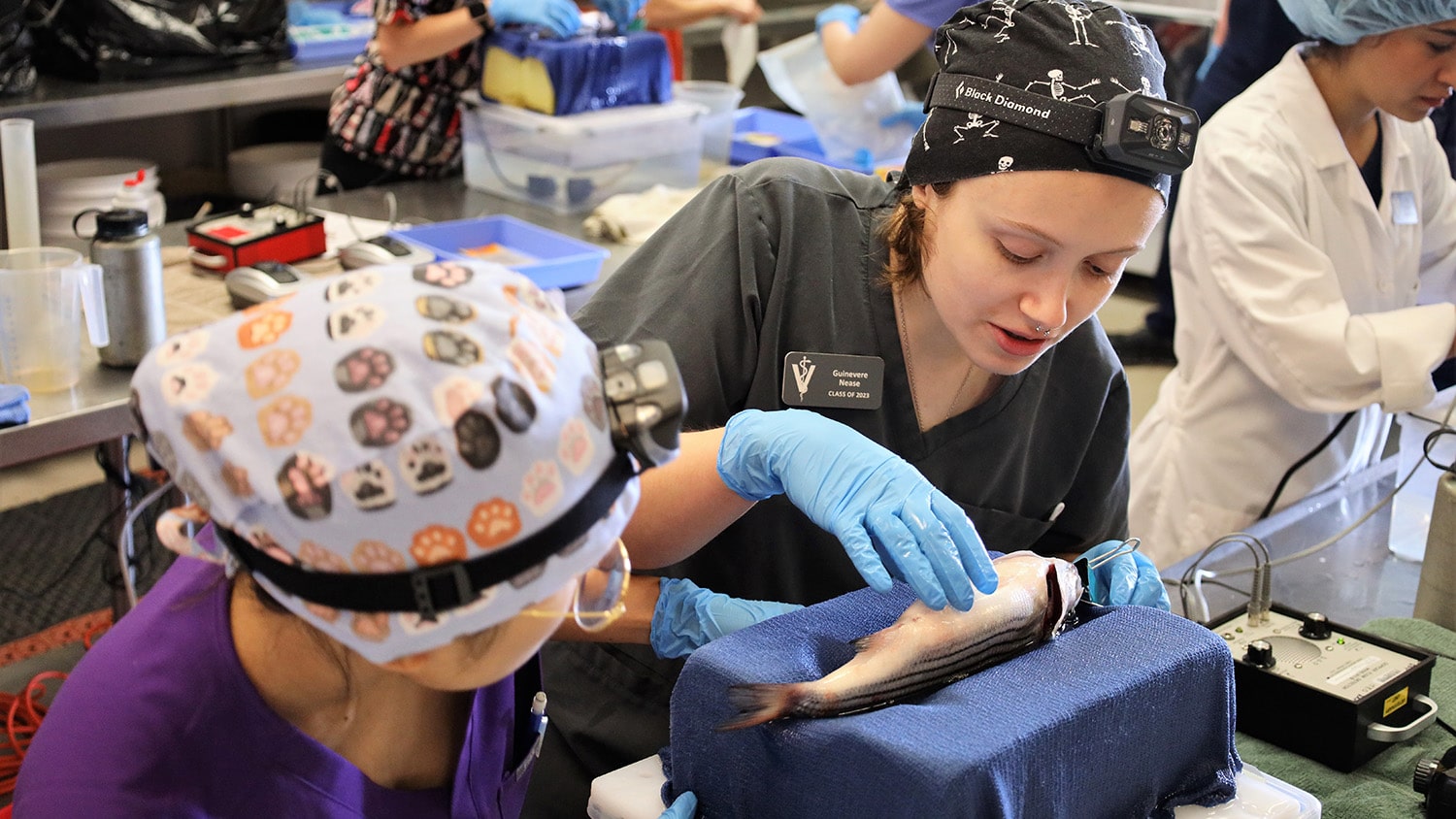Making STEM Accessible
From its home base on Centennial Campus, the Science House creates inclusive pathways to STEM education for K-12 students and teachers across North Carolina.
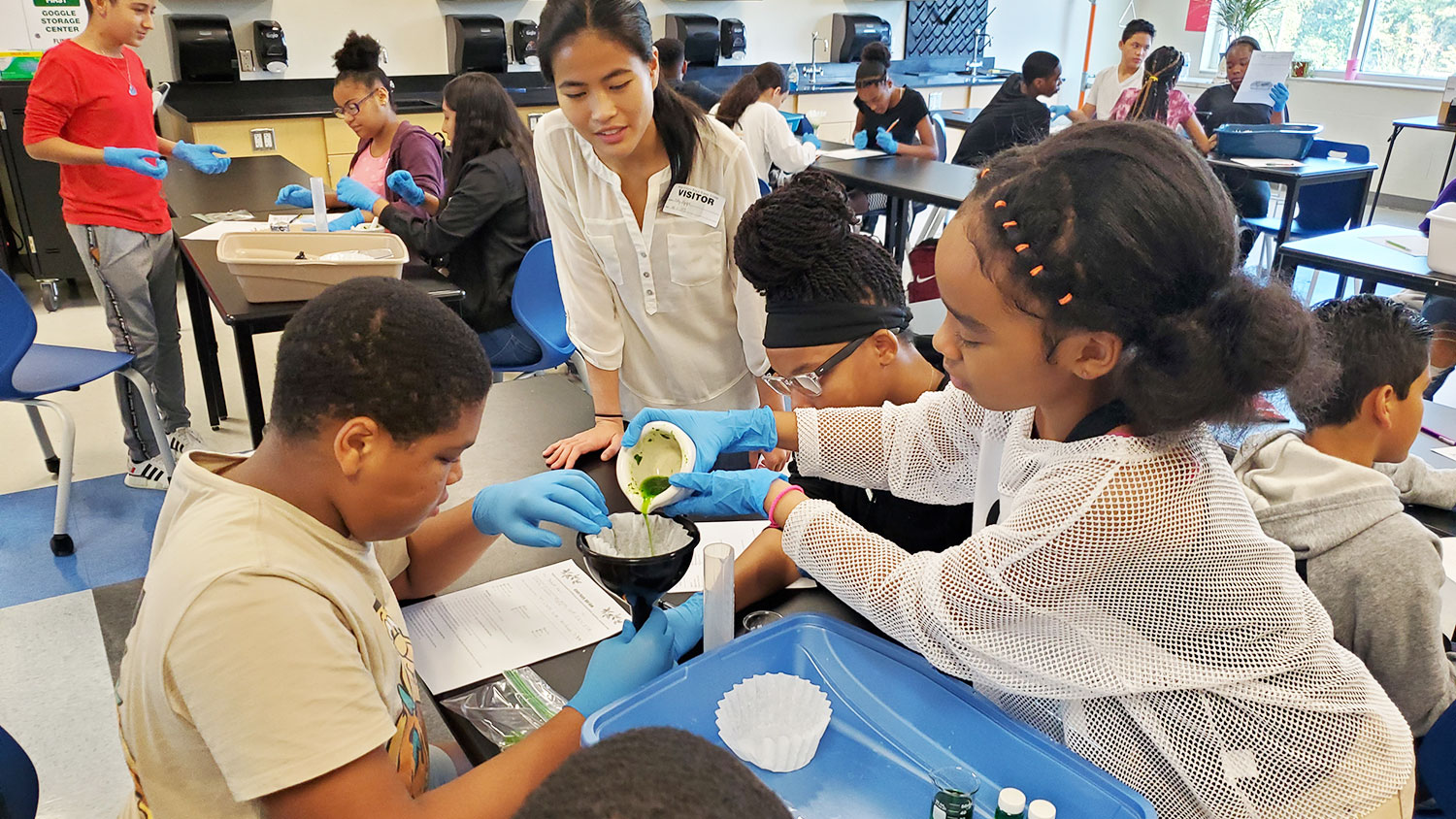
For many North Carolina children — especially those who live in remote or rural communities — having access to the latest STEM learning resources can be a tall order.
Enter the Science House.
Based at NC State, the organization reaches more than 4,000 North Carolina K-12 educators and 25,000 students each year through its in-person and online programming. This creates a ripple effect that ultimately impacts more than 200,000 students across the state, says Science House Director Jason Painter.
“The Science House is in a unique position to connect the massive talent and resources of NC State to students and teachers throughout North Carolina,” he says. “We’re committed to expanding students’ hopes and dreams about their future so that they may identify themselves in a future STEM major and career.”
What started nearly 30 years ago as a small professional development program for teachers has evolved into a far-reaching organization with satellite offices in Asheville, Lenoir and Morehead City.
Through a combination of grant funding, registration fees and contracted services, the Science House continues to grow as the K-12 outreach arm of NC State’s College of Sciences. Today, students in all 100 North Carolina counties benefit in some way from its programs and services.
‘A Shining Star’
From delivering professional development programs to loaning much-needed technology to resource-strapped schools, the Science House provides teachers with a powerful platform to advance STEM in every corner of the state.
“Many of our partner schools are very limited as far as technology goes,” Painter says. “We really want teachers to integrate technology and hands-on activities into their instruction, but we found that many of them don’t have the equipment or support to do it.”
So the Science House developed an equipment loan program that enables teachers to borrow everything from iPads to Sphero robots.
“We want them to have access to all kinds of technology that we support,” Painter says. “And then we take it to them and make sure they can actually use it. Just because we did a workshop with them doesn’t mean they remember exactly how to implement it with their students. So we’re there to support them and to make them comfortable to do that.”
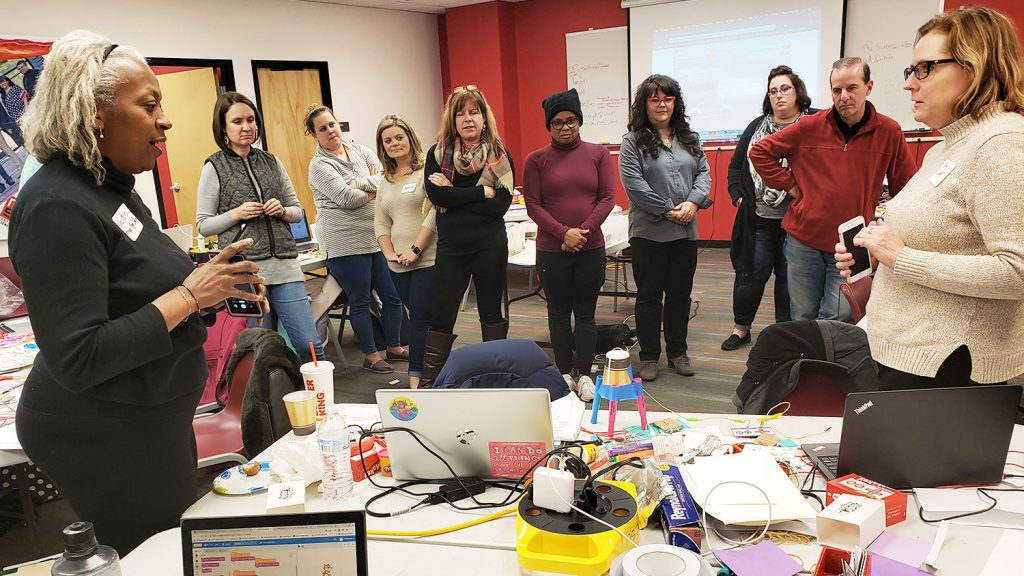
Teachers also can take advantage of a full slate of Science House workshops, online lesson plans and customized trainings.
“Jason Painter and his team are doing remarkable work across North Carolina,” says Tom Heck, a vice president with Makey Makey, a company that manufactures electronic invention kits.
“Based on my experience of traveling to almost all 50 states and working with organizations that train educators, I can tell you with great certainty that the Science House is a shining star when it comes to delivering quality professional development.”
The STEM Workforce of Tomorrow
The Science House also provides all sorts of opportunities for students, including after-school STEM clubs, conferences, summer camps, robotics teams and residential learning experiences at NC State.
Its longest-running program, the Imhotep Academy, serves students historically underrepresented in STEM. And its biggest program, the North Carolina Science Olympiad, aims to attract and retain K-12 students interested in STEM degrees and careers.
“Last year we had some sort of activity in all hundred counties of North Carolina, largely due to the Science Olympiad,” Painter says. He became executive director of the Science Olympiad in 2006 and helped forge the partnership with NC State that brought the Olympiad into the Science House. Since then, Painter says, participation in the Science Olympiad has exploded.
Another Science House program — Catalyst — supports students with disabilities.
Two years ago, a group of Catalyst students won an innovation prize from MIT for inventing a scale that detects lameness in cattle. They were the first student team with disabilities to win the prize.
Gov. Roy Cooper came to the Science House to meet with the team and asked them how they would change schools to better meet their needs. Painter says the students didn’t hesitate to answer this very important question.
“Each one of them stood up, thanked the governor for being there, and in their own way, told him how important Catalyst had been in their growth and development and how schools needed to do a better job meeting the needs of students like them because they’re just as smart and they can do innovative, impressive things. They just need to be given the opportunity.”
“It was one of the more moving experiences of my life,” he says. “We’re really working hard to provide opportunities for all students to be successful.”
Demystifying STEM
“The Science House has literally changed my life,” says Rachael Polmanteer, an eighth-grade science teacher at River Bend Middle School, a Title I school in Raleigh (which means that 70% of her students are on free and reduced lunch).
“I have worked with the Science House since 2016 to bring citizen science to K-12 classrooms. Citizen science enables students to participate in real science and to see that what they are doing in school makes a difference.”
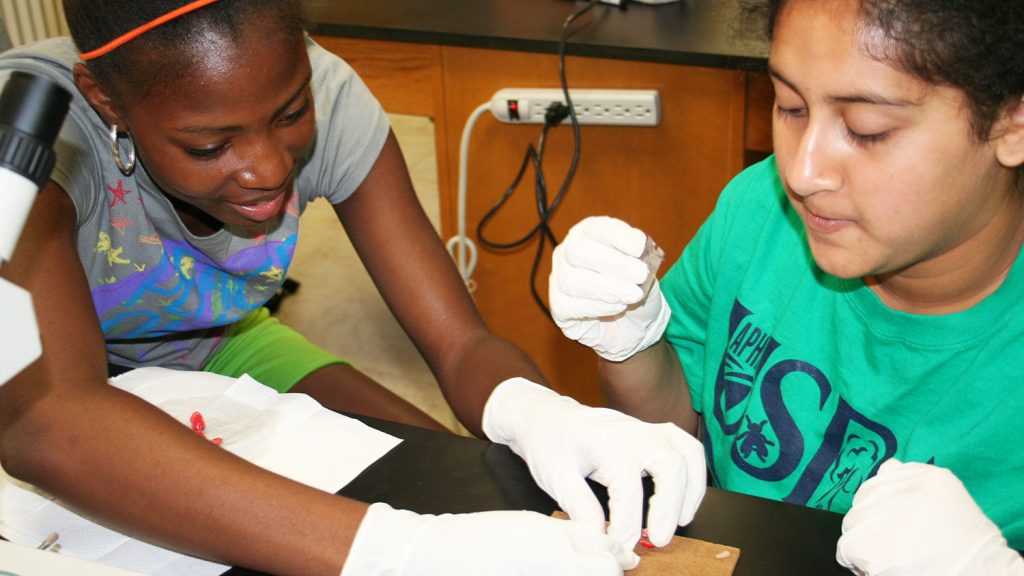
Polmanteer also has participated in Science House professional development activities and the equipment loan program.
“Without the Science House, none of this would be possible,” she says. “I hope to continue to work with them to bring relevant, up-to-date science into the hands of every student.”
That last part is key, Painter says. Every student deserves a chance.
“A big part of our job is to demystify STEM and help all students believe that they too can be an innovator and a scientist and make discoveries,” Painter says.
“We exist for that purpose. And we are successful because the College of Sciences and its leadership believe that what we do is critical in creating inclusive pathways to STEM that embrace everyone and make all STEM fields stronger as a result.”
Want to dig deeper? Check out the Science House’s programs for teachers and students, or find a satellite office near you.
- Categories:
